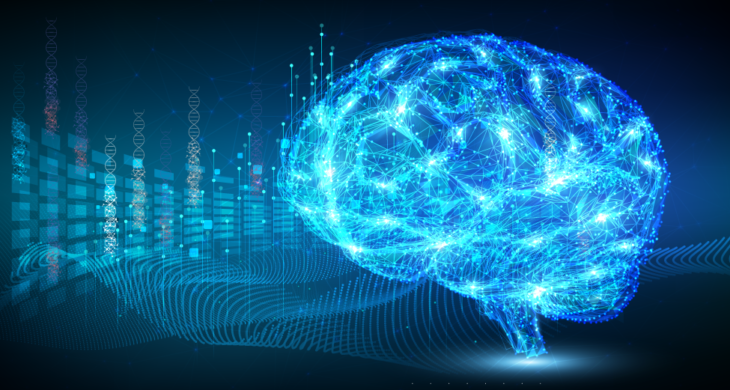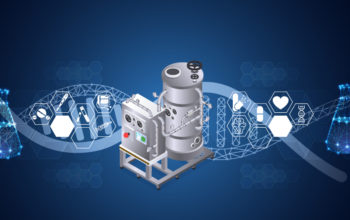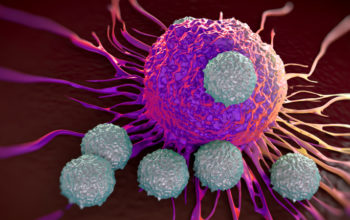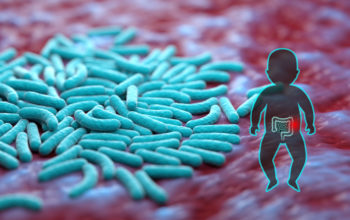
Date: 23rd March 2020
Understanding the complex cell-to-cell messaging that modulates cell behaviour or drives biological processes can give us important information into how normal mammalian tissues function as well as insights into pathological dysfunction. Now, scientists have created a technique which ‘prints’ two-dimensional arrays of cells and proteins that are able to mimic diverse biological environments in the body.
Previously developed methods have attached individually tethered cells or proteins to a substrate via a short string of DNA, here the new technique, developed by Lydia Sohn and colleagues at the University of California, took advantage of a patterning process called photolithography to attach, or print the cells or proteins in batches, which greatly sped up the process. The technique was used to rapidly print intricate patterns of up to 10 different types of cells or proteins onto a flat surface.
Photolithography is an optical means of transferring a pattern onto a substrate. Traditionally a photosensitive polymer is selectively exposed to light, initiating a chemical reaction which dissolves the coating in illuminated areas, leaving behind a latent image of substrate. Here, the team used the method to create a pattern of 20-bp oligonucleotides (oligos) attached to a glass substrate. This high-throughput approach allowed the team to rapidly produce complex, template DNA patterns over large areas. The DNA templates were then utilised to instruct the spatial organisation of complementary oligos linked to biological components such as cells and ligands through hybridisation.
As a proof-of-concept the team used the technique to produce patterns of neural stem cells (NSCs) alongside important cellular signalling proteins to find out how these proteins influence the cells’ ultimate fates: initially investigating proliferation versus differentiation.
The team distributed NSCs onto thousands of arrays displaying different patterns of two proteins, FGF-2 and ephrin-B2. FGF-2 is known to promote proliferation whilst ephrin-B2 differentiation. The team wanted to determine how the spatial organisation of the two signals helped to determine cell fate.
The team were able to track how the initial parent NSC and its subsequent progeny distributed themselves over time in response to the spatial modulation of FGF-2 and ephrin-B2 microdomains. They found that NSCs had a strong spatial bias towards FGF-2 and identified an unexpected subpopulation which exhibited high neuronal differentiation despite spatially occupying patterned FGF-2 regions. This small population of cells was likely to differentiate through their dynamic neurite (projections) that extended into the ephrin-B2 regions.
Conclusions and future applications:
The novel platform presented here, in the journal Science Advances, used established photolithographic techniques and programmable DNA to rapidly “print” two-dimensional arrays of cells and proteins to fabricate multicomponent, hierarchical patterns which can potentially mimic a wide variety of biological environments.
The team sees this technique as an intermediate platform in essence allowing us to create in vitro tissues and thus bridging the gap from in vitro to in vivo. The power of the platform lies in its high throughput – allowing the patterning of many cells and proteins. This affords the patterning technology a high statistical relevance as each pattern can be replicated, or adjusted and is akin to running thousands of smaller-scale, independent, experiments in one run.
The flexibility of the system makes it a powerful method in the study of many different cell type decisions, and in how information is relayed to the cells. It is hoped that it will offer an insight into how cancer cells metastasises, or perhaps give us knowledge into how we can programme stem cells to specific lineages in order to alleviate disease or injury.
We have recently seen advances in bioprinting, such that scientists have integrated neural cells within bioprinted skeletal muscle to accelerate muscle regeneration in vivo. It is likely that the technique here, will be adapted into 3D printing however, the lessons learnt from 2D printing will be invaluable for this future instruction and increase in complexity.
For more information please see the press release from the University of California
Scheideler, O. J., C. Yang, M. Kozminsky, K. I. Mosher, R. Falcón-Banchs, E. C. Ciminelli, A. W. Bremer, S. A. Chern, D. V. Schaffer and L. L. Sohn (2020). “Recapitulating complex biological signaling environments using a multiplexed, DNA-patterning approach.” Science Advances 6(12): eaay5696.
https://doi.org/10.1126/sciadv.aay5696


